Himalayan Balsam Removal & Control

The overview
Common Name: Himalayan Balsam
Latin name: Impatiens glandulifera
In Detail
Identification of Himalayan Balsam:
- Reddish coloured stems
- Common on river banks
- Dark green lance-shaped leaves with jagged edges
- Large, brightly coloured flowers usually in variable shades of purple and pink
- Flowers June to October
- Grows up to 2m height
- Dies back at end of growing season
- Produces 2500 seeds per plant each year
- Explosive seed pods
Himalayan balsam plants can produce around 2500 seeds each year. The seedpods open in such a way that the seeds are thrown several metres away from the parent plant, helping the species to rapidly spread – often quoted as 20 metres in all directions per season.
Seeds can also be transported by:
- Water – if parent plant is close to river or stream;
- Movements of contaminated soil;
- Fishermen/walkers picking up seeds on footwear.
Who we help
We have a long track record of managing some of the most complex sites in the country and have worked with the Environment Agency on several large flood alleviation projects, as well as providing advice to the majority of house builders and developers in the UK.
Click here to view who we help

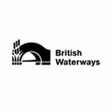





What’s the problem?
- Legal implications
- Invasive non-native species
- Rapidity of growth and spread
- Explosive seed pods
- Erosion on river banks
What are the legal implications? *England
- Possible fine or prison sentence
- You must not allow Himalayan balsam to spread onto adjacent land – the owner of that land could take legal action against you
- You must not allow or encourage the spread of Himalayan balsam – this includes moving contaminated soil from one place to another or incorrectly handling and transporting contaminated material and cuttings
- You do not need to notify anyone
- You are not obliged to remove or treat on your own land
If you have concerns over Himalayan balsam on your land, if you are unsure of your legal responsibilities, or, if you would like a quotation for control, please contact one of our specialist surveyors. Treatment costs start at £380.00 + VAT.

Where we have worked
We operate nationwide with a Rapid Response Team on standby 7 days a week, to deal with the most urgent client enquiries.
We’re a dedicated team of professionals who share a great deal of experience. We invest heavily in the continual training of all our employees, ensuring you always have a highly qualified team working on your project with the latest industry accreditations.
Our process
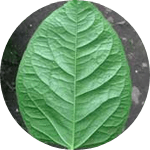
1. Identify
Our first step is to identify if you have an invasive plant. For a quick ID, you can send us some photos. Alternatively, we can carry out a full site survey to confirm the extent of the infestation.
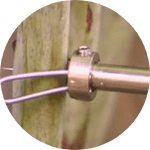
2. Solution
We will provide a range of treatment options individually tailored depending on your site requirements.
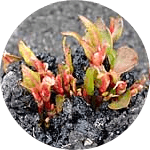
3. Quote
A detailed breakdown of costs for each phase of treatment will be provided, including on-going monitoring programmes with insurance backed guarantees.
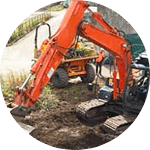
4. Removal
Our experienced and professional in-house teams will carry out the treatment to the highest of standards to achieve full eradication. All works are carried out in accordance with the INNSA Code of Practice.
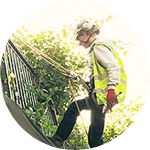
5. Treatment
A range of treatment solutions are available, from in-situ herbicide application to excavation and removal or burial. All carried out in-house by our experienced team.

